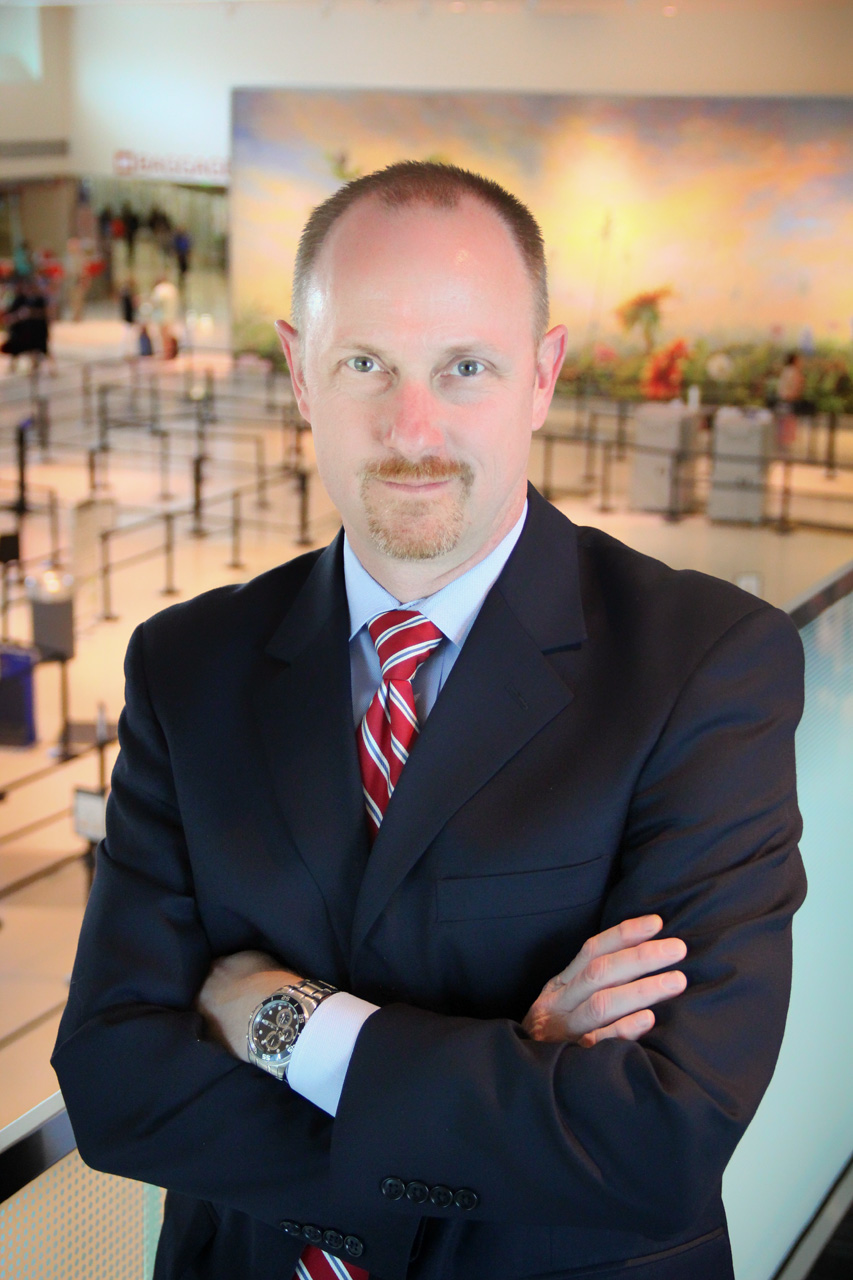Over the years, Duebner has seemingly done it all with the city of Dallas -- from
public works, transportation and streets, to service as the top civilian commander
for the Dallas Police, to business procurement of more than $200 million in goods.
A UNT-required internship 23 years ago gave Duebner his start in the city manager's
office.
"From the very beginning, I got to see everything from the top level," he says. "By
far the most important thing was to be able to sit in on meetings and discussions
with the executive staff to watch how they worked through decisions on budget, policy
and the city's overall strategy to address various issues. Learning how to consider
multiple points of view, thinking about what impacts these decisions would have, and
how to navigate working with the mayor and council was invaluable in helping me do
what I do now."
He worked his way up and landed in the city's aviation department in 2011 -- making
him one of the biggest names in the field. Among his honors, he was named to D CEO's 2018 edition of The Dallas 500, a list of the most powerful business leaders in the
area. Today, Duebner oversees the Dallas Executive Airport as well as the city's vertiport
and the bustling Dallas Love Field Airport.
He helped with Love Field's expansion after the repeal of the Wright Amendment in
2013 and completes everyday tasks to keep the air traffic flowing.
"You're not going to get headlines for getting a contract to buy a de-icer or buying
a new fire apparatus," he says. "The sad news is that you go to a lot of meetings.
I hate to burst anyone's bubble, but meetings are necessary for people to communicate
and collaborate."
Still, some tasks are beyond the usual. When Hurricane Harvey hit southern Texas,
Love Field, received 26 aircraft with more than 1,900 evacuees that needed to be bused
to local shelters. He worked 12 hours daily for 32 days to help with the relocations.
And when three dogs wouldn't fit on the bus taking evacuees to an Arlington shelter,
he even drove the pet passengers across town himself.
